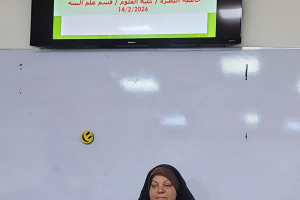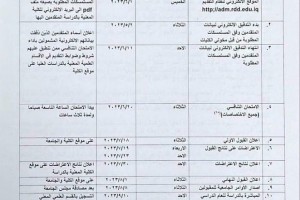
A master's thesis was discussed in the College of Science at the University of Basra under the title (Relationship between Vitamin D and Mineral Status with Renal Bone Dystrophy in Chronic Kidney Patients) of the student Batoul Tariq Safi, and the number of its chapters are four. the aim of the study was to determine the serum levels of vitamin D, parathyroid hormone PTH, osteocalcin and some minerals (calcium and phosphorous) in patients with dialysis and its effect on renal bone disease. As blood samples were collected from 160 people: 100 dialysis patients and 60 donors (control group). The questionnaire was used through a questionnaire to exclude patients or healthy people taking nutritional supplements such as vitamin D. The results of the current study showed a significant decrease (P≤ 0.05) in the level of vitamin D in all dialysis patients from the control group. Also, a significant increase in the level of PTH and osteocalsin was observed for patients on dialysis compared to the control group. The results showed an increase in blood alkaline phosphatase, potassium phosphorous, chloride, creatinine, urea, uric acid, ferritin, diabetes, and lipids, with a decrease in the level of calcium, albumin, free iron and transferrin compared to the control group. The division according to PTH levels showed that osteodystrophy occurred in patients with dialysis and for both sexes, as it showed a high loss of bone mass by 30% for females and 27% for males at a high level of PTH (greater than 300 pg / ml), while the loss appeared Low BMM was 20% for females and 23% for males at low PTH (<150 pg / ml). According to the symptoms accompanying the patients, in the high loss of bone mass 1 (2%) of the patients did not show any symptoms, 8 (14%) of the patients had bone pain, and 14 (25%) of the patients had muscle weakness. While 34 (59%) of the patients had symptoms of both bone pain and muscle weakness. Patients suffering from a slight loss of bone mass did not show any pathological symptoms 5 (12%), while other symptoms, including bone pain, were present in 4 (9%) of them, and symptoms of muscle weakness in 5 (12%) of them, as for bone pain. With muscle weakness, 29 (67%) of the patients were affected. The study recommended the following: Determining the level of vitamin D in the early period in hemodialysis patients to detect and treat complications of the parathyroid gland in patients, and to monitor the levels of calcium, phosphorous, alkaline phosphate and parathyroid hormone in the blood to reduce the rate and severity of bone diseases, study the effect of supplementation Dietary (vitamin D) in hemodialysis patients with secondary hyperparathyroidism and renal bone disease.







